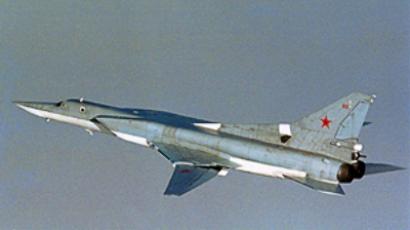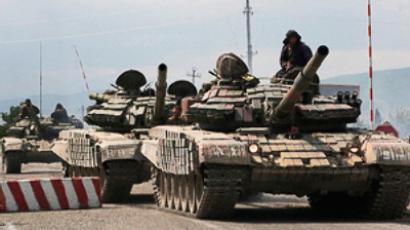Joint Russo-Abkhazian forces assume positions
Russian military cargo planes are delivering humanitarian aid to Abkhazia in the form of school books, medical supplies and children's toys. It is being taken to villages by Russian doctors and schoolteachers.
The mission is a joint effort between Russian border patrol officers and volunteers.
“People have not been receiving proper medical treatment for more than five years now, and that's why we are here,” Dr. Tamara Koneva says.
The Gali district is the only territory of Abkhazia where ethnic Georgians are a majority. Over 60,000 refugees have returned to the region from Georgia in recent years.
Many, like the Gvilava family, are waiting for the aid to arrive, and believe the Russian army will help preserve stability. With the arrival of the joint Russo-Abkhazian forces many people here in Gali say they feel much safer.
“They are here to protect us from those who don’t want peace. Of course we're glad,” Dzheiran Gvilava says.
Backing independence
Abkhazia declared independence from mainland Georgia in the early 90s, after it remained a frozen conflict zone for more than 15 years.
In autumn 2008, after Georgia launched a military campaign against one of its breakaway territories, Russia recognized Abkhazia and South Ossetia as independent states.
Following a series of terrorist acts last year, Abkhazia blocked the border with Georgia, blaming Tbilisi for organizing them.
The two states have subsequently signed a number of agreements with Moscow. One of the most significant was a promise by Russia to help secure the new borders after last August's war in South Ossetia.
After the signing of a Russo-Abkhazian bilateral treaty, a joint force was deployed to the checkpoints to minimize terrorist threats. Among their first finds were 52 landmines and some 100 kilos of explosives hidden in the woods.
“The explosives could have been used for terror attacks and provocations. I believe the border patrol did their best to prevent this,” border patrol officer Dmitry Korolyov says.
Besides security, the Abkhazians are hopeful that the new ties with Russia will help them reshape their lives and ensure that there will be no more war.
Talks in Geneva
Meanwhile, South Osssetia and Abkhazia have pulled out of talks in Geneva on security in the Caucasus.
The talks, which also include Georgia and Russia, are aimed at trying to reduce tension in the region following the war in South Ossetian last year.
Abkhazia withdrew from the discussions on Saturday over delays in receiving the UN's annual report on the region but said it would re-join on Tuesday, if it receives a copy.














